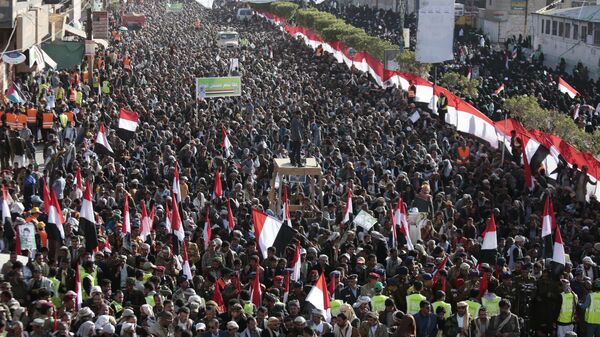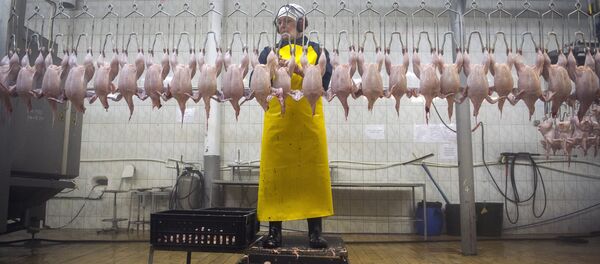As Yemen, the Middle East's poorest country, reels under an ongoing three-year military assault by US-armed Saudi Arabia and its allies, the world community watches in increasing alarm as a massive cholera outbreak approaches the million mark and widespread famine kills thousands of children.
"Yemen has turned into a Vietnam for Saudi Arabia," said senior Iranian government advisor Ali Akbar Velayati, according to a Wednesday statement to Al-Alam, cited by Financialtribune.com.
The ongoing Saudi-led invasion will end "just as Americans suffered a defeat in Vietnam, despite being fully equipped and forced to retreat from Southeast Asia in humiliation," the former Iranian presidential candidate asserted.
The December 5 execution of Houthi ally and former Yemeni President Ali Abdullah Saleh — while throwing the rebel faction's leadership into chaos — has nonetheless revealed that Yemeni fighters will not negotiate with the Saudi monarchy, and will not accept anything less than a complete cessation of hostilities and a withdrawal of Riyadh's forces from the beleaguered nation.
Riyadh's ongoing air and sea blockade has sealed off Yemen from the world and has resulted in what the United Nations is calling the world's largest humanitarian crisis, as over 10 million people at a minimum are in need of immediate assistance, according to the New York Times.
Following Saleh's shocking execution, Riyadh had expected the rebel organization to capitulate, but Saudi Arabia and its satellite states appear to have been caught flat-footed by a stubborn Houthi resistance.
Saudi military and intelligence assets, supported by the US global surveillance network — have been incapable of capitalizing on the assassination of the former Yemeni president who had shown an eagerness to use diplomatic negotiation with Riyadh as a means to end the bloody attacks.
In spite of the Yemen humanitarian crisis, Saudi Arabia and its allies have continued a punishing bombing campaign in the nation that has nonetheless failed to stop the Houthi armed resistance faction, and has intensified civilian suffering and global condemnation, according to Nytimes.com.
The Yemen capital city of Sanaa "is witnessing the worst days in terms of the humanitarian, psychological, military and political situation, and anxiety is hovering over everyone," reported Yemeni journalist Asem Alshamiri.
During a recent televised speech marking one thousand days since the beginning of the Saudi bombing campaign, Abdul Malik Al-Houthi, the leader of Yemen's Ansarullah movement, declared that Yemenis would never surrender.
"Enemies will not be able to take away our freedom, and weaken our willpower," the religious leader stated, cited by Lebanon's Al-Manar News.



